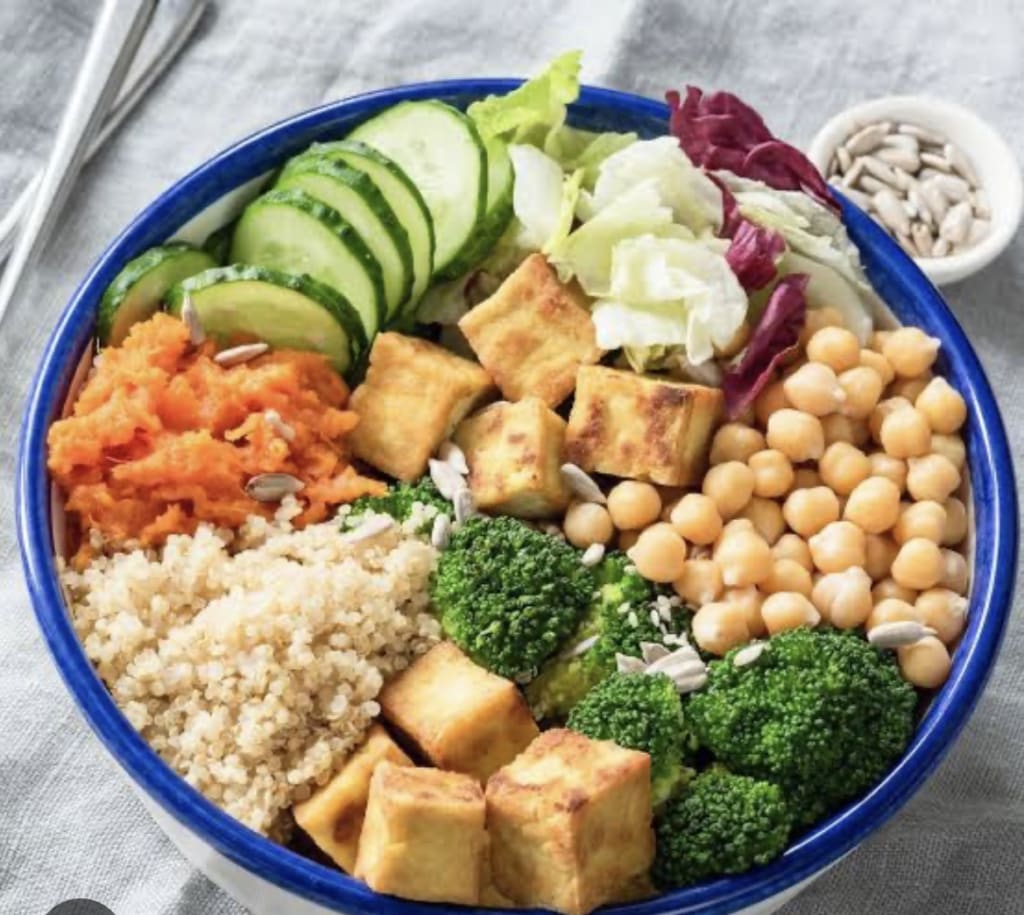weight loss diet
Weight loss is a common goal for many people, and a healthy weight loss diet typically involves a combination of balanced eating, portion control, and regular physical activity. Here are some general guidelines for a weight loss diet:

Caloric deficit: To lose weight, you need to consume fewer calories than your body burns. This is known as a caloric deficit. However, it's essential to ensure you are still getting enough nutrients and not drastically reducing calories.
Balanced meals: Focus on a diet that includes a variety of nutrient-rich foods, such as fruits, vegetables, whole grains, lean proteins (chicken, turkey, fish, legumes), and healthy fats (avocado, nuts, olive oil).
Portion control: Be mindful of portion sizes to avoid overeating, even if you're eating healthy foods. Pay attention to hunger and fullness cues to prevent unnecessary snacking.
Reduce processed foods and added sugars: Minimize your intake of processed foods, sugary beverages, and high-calorie snacks, as they often provide empty calories and lack essential nutrients.
Hydration: Drink plenty of water throughout the day. Sometimes thirst can be mistaken for hunger, leading to overeating.
Regular meals and snacks: Don't skip meals, as it can lead to excessive hunger and overeating later. Plan regular, balanced meals and healthy snacks to keep your energy levels stable.Mindful eating: Pay attention to what you eat, and avoid distractions like TV or smartphones during meals. Eating mindfully helps you recognize satiety cues and prevents overeating.
Limit alcohol intake: Alcoholic beverages are high in calories and can contribute to weight gain. Moderate or eliminate alcohol consumption during your weight loss journey.
Regular exercise: Combine your diet with regular physical activity to boost your metabolism and burn more calories. Choose activities you enjoy, such as walking, jogging, cycling, swimming, or dancing.
Seek professional advice: If you have specific health concerns or significant weight loss goals, it's best to consult a registered dietitian or a healthcare professional to create a personalized weight loss plan.
Remember, weight loss should be gradual and sustainable. Crash diets or extreme restrictions can be harmful to your health and lead to a cycle of yo-yo dieting. Focus on creating a healthy lifestyle that you can maintain in the long term for lasting results.A healthy diet is crucial for maintaining overall well-being and promoting optimal health. It involves consuming a balanced and varied combination of nutrients to support the body's functions and prevent the risk of chronic diseases. Here are some essential components of a healthy diet:
Fruits and Vegetables: Aim to include a wide variety of colorful fruits and vegetables in your diet. They are rich in vitamins, minerals, antioxidants, and dietary fiber, which are essential for good health.
Whole Grains: Choose whole grains such as brown rice, quinoa, oats, whole wheat, and whole grain bread over refined grains. Whole grains are a good source of fiber and provide sustained energy.Protein: Include a mix of protein sources in your diet, such as lean meats, poultry, fish, eggs, legumes (beans, lentils, chickpeas), tofu, tempeh, and nuts. Protein is essential for building and repairing tissues.
Healthy Fats: Incorporate sources of healthy fats, like avocados, nuts, seeds, olive oil, and fatty fish (salmon, mackerel), while limiting saturated and trans fats found in processed and fried foods.
Dairy or Dairy Alternatives: Choose low-fat or non-fat dairy products, or opt for dairy alternatives like almond milk or soy milk if you are lactose intolerant or prefer a vegan diet.
Limit Sugar and Salt: Reduce the intake of added sugars and excessive salt. Avoid sugary beverages and try to consume naturally sweetened foods instead.
Hydration: Stay hydrated by drinking plenty of water throughout the day. Limit the consumption of sugary drinks and opt for water, herbal teas, or infused water.
Portion Control: Be mindful of portion sizes to avoid overeating and maintain a healthy weight.





Comments
There are no comments for this story
Be the first to respond and start the conversation.